The Beginning: Charlie and the Dream
He was on this monstrous bridge. It didn’t connect one place to another place though, as bridges normally do. It just existed in space. In this magnificent, neverending sky. A sky that surrounds the bridge. A sky that surrounded everything.
Charlie started at one point on the bridge, and he was compelled to traverse it. To cross it somehow. To get to the other side. But he couldn’t just cross the bridge. It wasn’t that easy. Yet at the same time it was. The only truth that exists in this Bridge place is that one must cross it. One must find a way.
And so Charlie began his journey. Or had he always been travelling along this bridge? Crossing it eternally? The answer to this question was unclear to Charlie. In this dream state his conscious, thinking mind was muddy. He was just compelled to move forward. That’s all he knew.
As he moved forward, he became aware that the bridge was far from finished. It was still being constructed. The traffic moves along though, people traveling along the bridge in one way or another. Charlie is not alone on the bridge in the immense sky. There are many lost souls traversing the Bridge. Some falling into the depths of the sky as they made their attempts forward. Some scrambling to and fro, struggling to keep their balance on the as yet unfinished wooden beams. At a certain point on the bridge thought, it becomes impossible to go any further. All the people stopped. All remain stagnant, awaiting the bridge to be finished.
But Charlie went on, this unknown force propelling him forward. Propelling him forward to sure death. And yet he was not afraid. He was calm, and peaceful. And so he proceeded. There were a few that went before him, that were in front of him. He could sense that. He could make them out vaguely in the fog that enveloped them. But he tried to follow their footsteps, to keep his eyes on the seemingly distant figures while at the same time watching his footsteps carefully so as to avoid stumbling. Stumbling would not be good, clearly.
For a moment his rational mind kicks in. Charlie doesn’t know why he’d be foolish enough to go forward, to go where there is no foundation, to step into a world of unbalanced and unfinished planks and boards, surrounded by this deep, endless sky of blue and clouds. But he presses on regardless, impelled by some unknown force. He just knew he had to move forward.
The path started to become treacherous. The once sound concrete became unstable wooden planks under his feet. It was no longer possible to see the ground below. The sky around him was a bottomless pit. But he must carry on. He must push forward and find a way across. “Across to what?”, he thought to himself.
The boards and planks are temporary structures, that much is certain. The masses were not meant to come this way. But there are a few people making the same journey as Charlie, scampering around, trying to keep their balance amongst the sea of fear and uncertainty – the deep blue sky.
This is Charlie’s dream. One of those recurring little bastards that just wouldn’t leave him alone. It existed only in his mind, he knew this, and yet it was so real. He always awoke from that dream with a sense of fear, and a sense of calm at the same time. Go figure.
Dreams have played a significant role in the life of humans for many thousands of years. It is unclear when mankind started to dream. It is unclear when mankind started really.
Anthropologists would have us believe that humanity began with the advent of the homo species about two and a half million years ago. That’s a pretty long time ago. We consider our lifetimes to be crucial. We consider our feelings, emotions, and experiences to be of the utmost importance. The anthropologist would have us believe, taken from the perspective of the timeline of humanity, that we are fairly insignificant creatures with very little effect on the overall path of humanity. And yet we all feel special and important at the same time.
The anthropologists would categorize dreams within the realm of consciousness. They consider consciousness to be categorized along with tool making, the sharing of food, and social interaction, all manifesting at some point in our history and bringing about the wonderful society that exists today. It was with the advent of consciousness, tool making, and socializing that paved the way for mankind and brought us to the technologically advanced civilization that man has created in the twenty-first century.
Anthropologists study their fossils in the context of Darwin’s theory of evolution, Natural Selection. This theory stands as an icon of science that in many respects has propelled modern day western thought to where it stands now, at least from a biological and anthropological perspective. Man evolved due to genetic mutation and natural selection, the scientific and biological religion as it were.
Consciousness was an afterthought in this branch of thought. It’s one of those things that came about because man was evolving, a neurological process that helped man survive and evolve. It would never occur to an anthropologist that consciousness might be the cause of all evolution rather than the other way around. This line of thinking dwells in a different school of thought, juxtaposed from science, biology and anthropology and built on faith rather than Reason of hard Science.
It is clear from the Homeric poetry (circa 1200 BC) that the Greeks considered dreaming to have divine significance. The dream was the way the gods could speak to you. Today, dreaming is thought of in terms of Freudian psychology[1]. Freud divides the mind into the conscious and the subconscious. Dreams are of the subconscious genre, where our latent desires and wishes come to life. According to Freud, the ancients misinterpreted their dreams. They were not divine intervention, but the manifestation of one’s deeper self. Or in the Jungian sense, the manifestation of archetypal themes and their application to our daily lives[2].
So many of us wake up in the morning, knowing what we dreamt the night before. We sort of mull it over for a few minutes before we have to get up, and go to work, or do whatever it is we do during the waking hours of the day. By the time we hit the showers, our mind has already begun to race and reel about the upcoming events of the day. We’ve begun again. We have started afresh, with a bright new day ahead of us and the dream becomes a distant memory, banished to the realm of the unreal and fantasy, looked at only as some strange manifestation of mind and consciousness that we don’t have time to really consider.
So what is that experience we call dreaming? What is its relationship to our daily life then? What significance if any do we attach to it? And for that matter, who is it that dreams?
Charlie was born and raised in New York City, the city that never sleeps. He had traveled some, mostly to Western Europe and some to Southern Africa, but still he had this view that there was no other city in the world like New York City. You could say that New Yorkers have a sense of arrogance and confidence that is innate in them, born from the constant struggle to get ahead in that concrete jungle and do what it takes to survive in the place where all the great minds and aspirations of the world come to prove themselves. Sinatra said it in his “New York, New York” tune, if you can make it there you can make it anywhere, and Charlie had no argument with him on that front.
At present, Charlie was attempting to bootstrap himself into the software and systems arena. He had spent most of his adult life chasing after yellow fuzzy balls on a tennis court. But as his youth faded into young adulthood, it became increasingly apparent to him that he just wasn’t good enough to compete with the big boys as professional athlete, not if he wanted a nice roof over his head and three solid meals a day. It was not an easy conclusion to come to, and he kicked and screamed along the way for sure, denying his weaknesses and foibles on the tennis court, in the arena, as any person might who wants something so badly but just isn’t cut out for it for one reason or another. As Mick might say, “you can’t always get what you want, but if you try sometime, you just might find, you get what you need”.
Software and systems was a difficult field. A scientific field really. But Charlie had a scientific bent, and as he picked up software and programming, at first on his own and then in turn via a post graduate degree, he found a great pleasure in the art of software design. From his philosophical and creative standpoint, software development represented the opportunity to birth a living, breathing organism that lived and breathed in this world just like people or animals. Other people interacted with these creations and you could have an impact on people’s lives with the software that was created. Just think about Facebook or Twitter, think about how they have impacted and changed the world we live in, how we interact with each other. That was real power.
Charlie was no more than a little boy with his building blocks really. Except these building blocks built applications that had the potential to manage business processed and functions in global enterprises, or impact the lives of millions of users. Those little keystrokes that were crafted into files that were compiled or interpreted by run time systems that drive user interfaces and people’s interaction with them. It was cool. It was fun. And yet at the same time awfully complex and frustrating at times. Not a bad way to make a living he thought, certainly better than chasing after yellow fuzzy balls all the time living out of a suitcase and getting ass whipped every week.
As he coded, he would lean over his keyboard… Studying it… Feeling the stress of the keys as his fingers nimble their way across the various keys to write the instructions that would be interpreted by run time system to perform whatever function he might be developing at the time. He wouldn’t have to look at the keyboard really. And he knew what he had to type. To complete that last section of code, finalize that last algorithm that drove the core of the system he was building at the time. It all had to rest in your head as you coded. To be a really good developer, you had to have the whole system in your head while you wrote particular functions. Yes you could divide and conquer and write functions and procedures that performed specific tasks. But in order to build something special, and interesting, and powerful, you needed to have the whole picture in your head, and know how everything fit together. It was only then that you could make the subtle adjustments and nuances necessary in order to build an efficient and lasting piece of software.
A man and his keyboard. The relationship is a powerful one when you think about it. Most people these days spent more time interfacing with their keyboards than they did just about anything else. A man and his machine. The two were linked and connected in this modern age like in no other. Where do you draw the line between man and his machine? Was it consciousness? Was the body a machine?
When he coded, his intensity was enormous. When it strayed, he reeled it in. If he lost his attention or train of thought for just a moment, the whole structure of the system would collapse in his mind, and then he would have to regain the vision in his head once again. And that would most likely require coffee, or some sort of caffeinated beverage. And there was only so much caffeine you could drink really. Charlie got irritable when he was interrupted while he was in the throws of development, like a woman giving birth you might say (loose analogy, yes).
But Charlie nonetheless was plagued by the dream of the never ending Bridge. And he was also intrigued by the nature of dreams themselves. He relished the knowledge that came from direct experience, and yet there was a part of him that believed that dreams were more than just a firing of neurons in one’s head after they had fallen asleep. That they had some reality on their own. That perhaps someone, or something, was trying to communicate something to him in his dreams. Especially that Bridge dream. It was so real. Freaky.
Experiential knowledge, to some schools of philosophy, is all that exists. Charlie adhered to this doctrine in a way. He had to really. All of his educational background and cultural experience had taught him that only the world he could see, touch, taste, smell, hear represented reality. Everything else was fantasy, fundamentally not real. The world of the mind, well that was the field of psychology or neurology. And that world, if entered into too completely and too fully, could cost you some sanity, could make you lose your marbles. Charlie hadn’t lost his marbles. At least not yet thankfully.
And yet he could not shrug off a powerful dream. That dream was telling him something. And it was something he wasn’t getting clearly, or else it wouldn’t just keep coming back again and again. It was like some extraterrestrial force was speaking to him, and the only language it knew was one of metaphor and imagery. And the force was too subtle to address him directly in his day to day life, it was something beyond the physical and material world that was trying to communicate with him. Or maybe he was just losing his marbles.
It was only two and a half months ago. Charlie’s life just took this one hundred and eighty degree turn. But it was as if someone else was driving. He knew now, looking back, that he was in fact driving, or at least he thought he was. Yet at that same time, he reflected, that didn’t really tell him much. He just didn’t know how he had ended up back in New York City again, trying his hand on a new professional career in software and systems. Where had his dreams of being a professional tennis player gone? They seemed so far away. And yet he knew he had made the correct change in direction. His hands and feet had gotten him as far as he could on the tennis court, and it was time to try to see where his mind could take him.
But he still had that same nagging question that seemed to hound him no matter what he was doing, or who he was with. Who am I? He found himself asking that question almost out loud every one and a while. Just so he could hear through his own ears the mystery behind the question. And that question just cut straight to the heart of it all? It cut right to the chase[3].
Charlie had been pursuing his dream. He wanted to be a professional athlete. Living like a gladiator, performing for a living, moving from town to town and country to country week after week. Meeting new faces from around the globe and exploring the depths of human athleticism and commitment to a dream. Physically, mentally, and emotionally challenging himself on a daily basis. Pitting himself against another human being. Delving into the depths of the human spirit to find out just how far you could push yourself. Find out what your limits were.
There was one catch though. It was a pisser trying to win money being a gladiator. They paid for gladiators pretty well, while they were gladiating. But when they weren’t, they were on their own. If you got injured, or had a family situation that needed to be attended to, well then that was that. No earnings, no points, no nothing. Tennis wasn’t like the other professional sports where you signed some contract and then come rain or shine you got paid. In tennis, at least at all the levels except for the very top, you had to earn your keep in every match. Every week. You had an off day and you were done. Bam, just like that. You didn’t move on to the next round. You packed your gear up, and you started to plan your arrangements for the next event, the next tournament where you could test your skills again and see just how far you could get. See how good you really were and if you could learn from that week’s mistakes.
But you had to get yourself to the next venue to play. And that cost money. The only way for a gladiator to make it really, was for him to be a really good gladiator. One that lots and lots of people would show up and pay their hard earned money, to see. But in order to get that good, you had to do a lot of gladiating. It cost money to gladiate. You get the picture.
Who am I? When he asked himself that question he found that there was no easy answer. There are so many ways he could define himself, and yet none of those definitions, none of those words, truly captured the essence of who he was. And yet he wasn’t sure who he was either. He was a tennis player. He was a software developer, he was a friend, a lover… the list went on. But he just couldn’t stand restrictions. The last thing in the world that he wanted to do is to build this fence around “I”, to include some things, and exclude others. For this “I” changed day to day. It was a dynamic, living, breathing entity. Ever changing and ever free, and yet bound by name and form at the same time.
At the time where Charlie’s journey began, he was twenty-four years old. Twenty-four being the number of years on God’s green Earth as they say, the number of times the Earth had traveled around the sun since he had been born. But was his birth the beginning? Was there anything beyond that? What if there is such a thing as the Soul? And it is truly forever free and eternal? Charlie found himself asking these types of questions more and more as he settled into his daily routine as a software developer in the city that never sleeps. As his days as a professional athlete faded into the background, and he began his professional career using his mind rather than his body to make a living, it would appear that another journey had begun for him, a journey of the mind, a quest to answer that nagging question that he was left with after that Bridge dream. Where was he going and what was the point of it all?
He had graduated from college a few years back. He had received his BA from Brown University, in Rhode Island. A school small enough to take over the town, but not huge by Midwest university standards. A total of five or six thousand undergrads in all. It was an Ivy though, and for some reason people thought that Charlie must be smart to have attended. Little did they know that it was ability to strike a tennis ball that had landed him at an Ivy.
His grades were mediocre in high school. He didn’t study much then, just coasted on some innate ability to get by with as little studying as possible. Nothing had interested him much in high school, except tennis and girls really. But once he got to college, he studied Business Economics and Theology and had applied himself somewhat to his studies, at least enough to have gotten something out of the education outside of some good friends a broken heart or two and a an All-American trophy.
His chosen field of study at school was most definitely a paradox – one part practical and one part philosophical. He tried to balance the practical with the esoteric like a professional trapeze artist, and the two disciplines both fed two aspects of Charlie’s evolving persona. He hadn’t intended to double major. He had fallen into it after he realized late in his college career that he ought to study something other than the culture and philosophy of ancient civilizations if he wanted to have a chance to get a job in the real world, the world outside of tennis that is. He wasn’t sure of much back then but he was pretty sure that if his tennis dreams didn’t pan out, that he didn’t want to be an archeologist or a historian.
Business in college classrooms wasn’t real business though, it was just theory mostly. More economics than business. In his Econ classes, mostly taught by Teaching Assistants (or TAs as they were affectionately called) they studied macro economic variables and their relationship to each other, exploring concepts like inflation, interest rates, budget constraints and exchange rates. It was interesting actually, to look at those variables and their relationship to the society at large, and in turn to tie them back to the perception and expectations of the individual and how the system as a whole underpinned economic growth. It was interesting theory and modeling of a very complex system, an interesting model.
Macroeconomics and Microeconomics. It reminded Charlie of the world of physics at times. You had the micro and the macro perspective of the system, just as you had quantum theory and relativity in classical physics. And like physics, although the models seemed to work independently, tying them together in one global singular theory was elusive to the theoreticians of the day.
Although Economics didn’t necessarily prepare him to enter the world of business, it did look good on his resume. It meant something to the people that were hiring him. He wasn’t sure what, but it did. Theology was different though. Theology was interesting. It seemed more meaningful to him in a way.
Charlie had started with the Classics. Then one day he found himself slaving away with one of Cicero’s speeches in Latin. He decided the language requirements were a little stiff for him, and switched to something a little more manageable – enter Theology and Ancient Studies. Study of the Ancients without the language requirements. Perfect.
He studied the life of the Ancient Egyptians, their cosmology, mythology, culture and their royalty. He studied Classical Greece and the Romans. The Hittites, the Assyrians, the Phoenicians. The big three cultures were Egyptian, Greek, and Roman though. These three ancient societies had done the most to shape modern western civilization more so than any of the other ancient civilizations and therefore represented the core part of the curriculum. Democracy, taxation, writing, agriculture, geometry, history, mythology, philosophy; all of these discipline could have their origins traced back to the Greek, Roman and Egyptian cultures from 5000 BC to 500 AD.
What was it about a culture that allowed it to live on and have an impact on the path of humanity? That was a question that intrigued Charlie, even many years after his time in academia was far behind him. These guiding principles and fields of thought that the ancients had crafted were lasting. Despite the fact that the ancient civilizations were long gone, these disciplines were picked up by later civilizations and scholars and lived on to form the basis for human society and perception today.
You could argue that life was not all that different today than it had been for the people of those great ancient civilizations. Sure, we were a little more democratic in our approach to government (at our best), we certainly had more respect for individual freedom and personal choice (at least in most countries in modern day), but the struggles of life, and what it meant to be human, were very much the same Charlie thought. After the advent of civilization and after the basic struggles for food and shelter were accounted for, the wanderings and life of mankind had not changed all that much in Charlie’s eyes.
It is from this Ancient Studies degree that Charlie’s story really begins. It is in the theology and the philosophy of the ancients that Charlie began to reflect and learn about the nature of “I am”, and in turn fall upon some of the philosophical systems that allowed him to answer some of his basic, recurring questions about the meaning of life and his place in it.
[1] See http://en.wikipedia.org/wiki/Sigmund_Freud.
[2] http://en.wikipedia.org/wiki/Jungian_archetypes.
[3] Cut to the chase is a reference to Court Tennis, the game of Kings. http://www.phrases.org.uk/bulletin_board/58/messages/1104.html

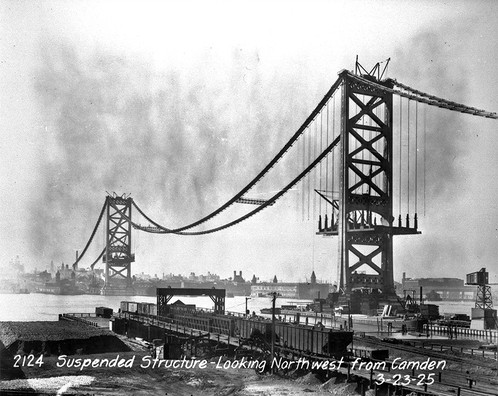

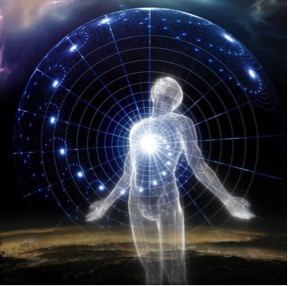

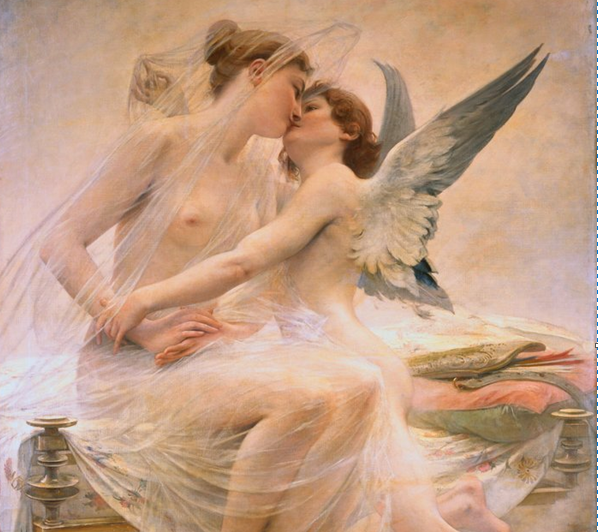
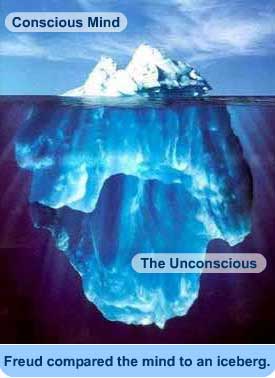
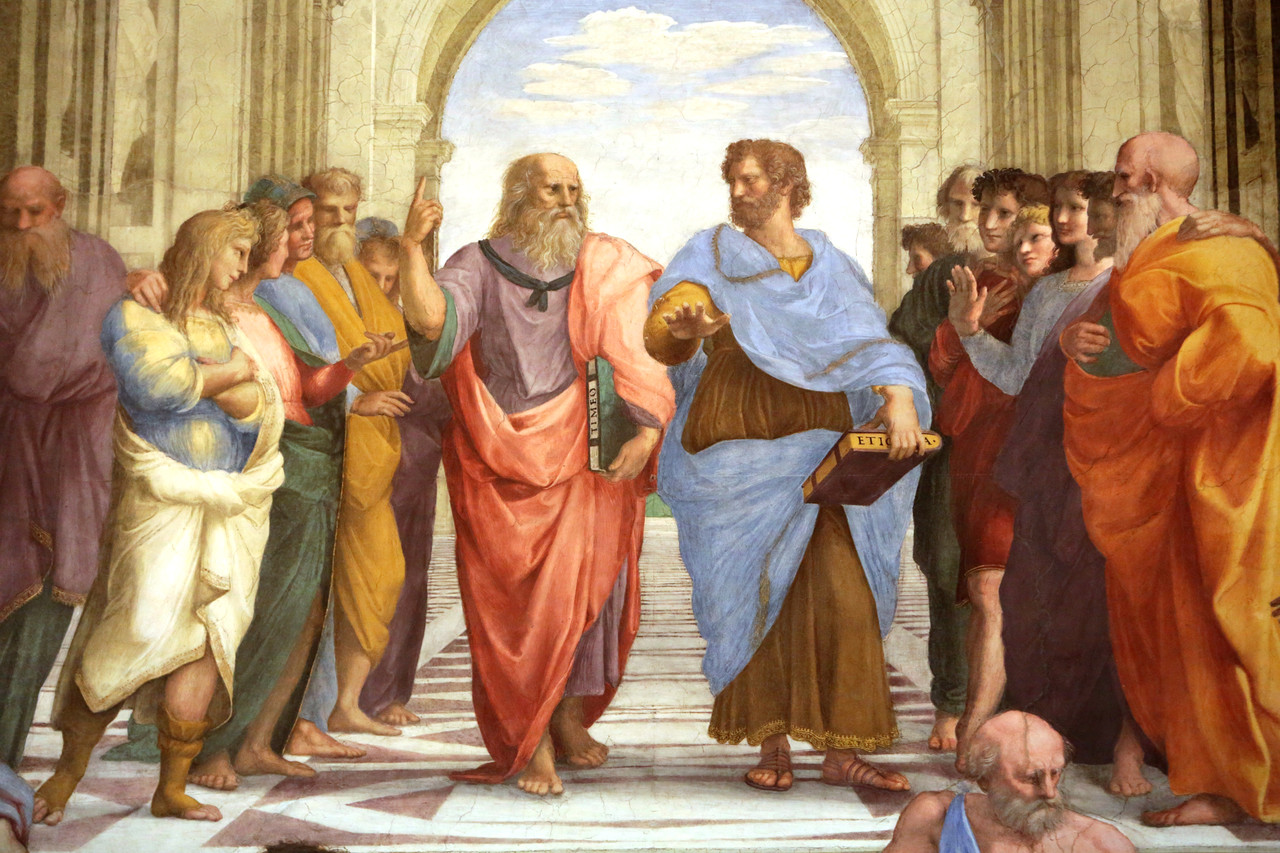
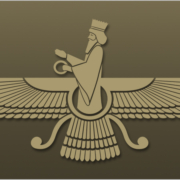
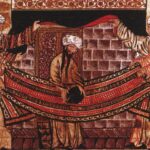

I’m not positive the place you’re getting your info, however great topic. I must spend a while learning more or figuring out more. Thank you for wonderful information I used to be on the lookout for this information for my mission.
The material is from a variety of sources from academic research as well as life experience. Glad you liked it, more is coming.
This is the right blog for anybody who hopes to find out about this topic. You know so much its almost tough to argue with you (not that I really would want to…HaHa). You definitely put a new spin on a subject which has been written about for decades. Great stuff, just great!
I rarely leave a response, however I read a few of the comments here The Beginning: Reality and Existence | snowconenyc.
I do have a couple of questions for you if it’s okay. Is it only me or
do a few of these remarks appear like they are left by brain dead individuals?
😛 And, if you are writing at other sites, I would like to keep up with anything fresh you have to post.
Could you make a list of all of your social community pages
like your linkedin profile, Facebook page or twitter feed?